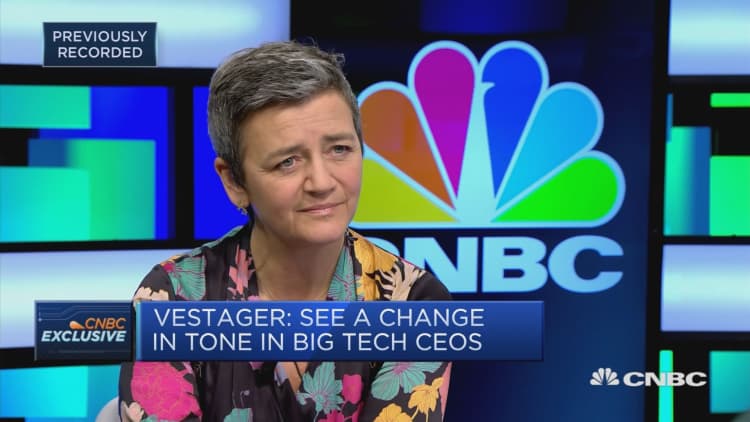BRUSSELS – The European Union is looking at ways to regulate artificial intelligence (AI) as it ramps up its oversight of large technology firms.
The European Commission, the EU's executive branch, opened a 12-week period of discussion on Wednesday aimed at better understanding how to protect EU citizens from what it describes as the negative impacts of AI. More concrete legislation is then expected in the second half of this year, in what could become its next big point of contention with companies such as Facebook and Alphabet.
"We recognize that we missed the first wave, or the first battle, which was the battle of personal data," Thierry Breton, the EU's commissioner for the internal market, told reporters in Brussels Wednesday. He said, however, that the "good news" is that the EU now understands that the next tussle will be over industrial data.

The EU is seen as a leader in corporate regulation, but European companies still struggle with competition from American and Chinese firms. The region's data privacy rules, called General Data Protection Regulation (GDPR) and were announced in 2018, serve as a benchmark for tougher regulation in other parts of the world, including in the United States.
Overall, the EU's aim when it comes to AI is to assess what sort of technologies are a risk to fundamental human rights, including in areas such as health care and transport. These will be subject to tougher requirements.
One area that the Commission is particularly concerned about is facial recognition. At the moment, the processing of biometric data in order to identify people is illegal in most cases, under data privacy laws. However, the EU is now looking at whether there should be certain exceptions.
Speaking to journalists in Brussels, Margrethe Vestager, the EU's head of competition policy, said: "Artificial intelligence is not good or bad in itself, it all depends on why and how it is used."
In an exclusive interview with CNBC Tuesday, Vestager said that the EU is taking a "double-sided" approach where it will enable this technology, while also ensuring it's not harmful to EU citizens.
Meanwhile, U.S. lawmakers are watching and waiting to see what the EU decides on. "We encourage the EU to follow America's lead and pursue an innovation friendly, values-based approach to AI regulation, one which avoids over-burdensome, one-size-fits-all policies," Michael Kratsios, the U.S. chief technology officer told CNBC in emailed remarks.
He added that "the best way to counter authoritarian uses of AI is to ensure the U.S. and its allies remain leaders in innovation, advancing technology underpinned by our common values."


